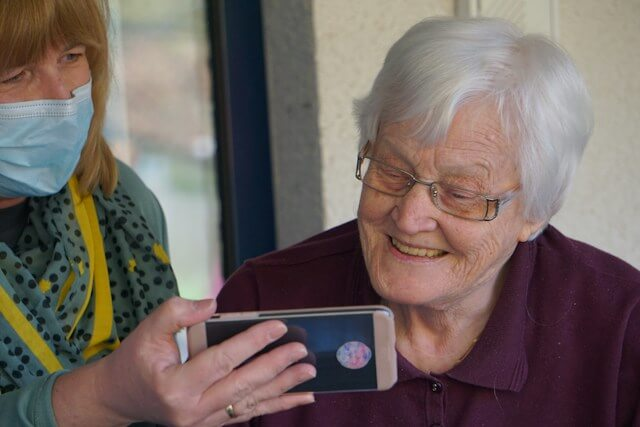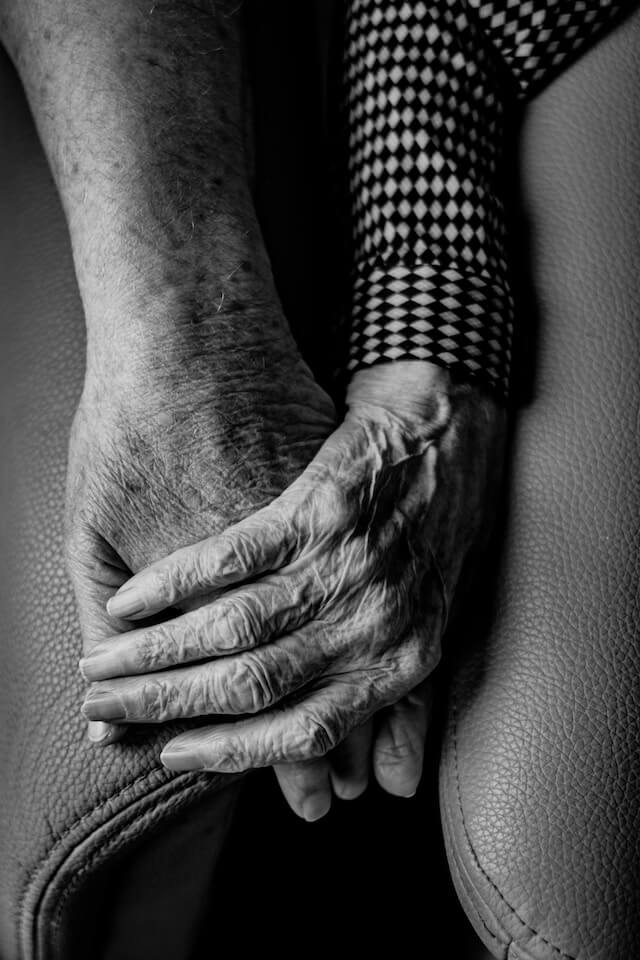There can come a time in everyone’s life where they will need at-home care. Oftentimes, we as family members take on the burden of caring for our loved ones while they’re in poor health or old age, and becoming PCS caregivers. This can take a toll on us mentally, physically, and emotionally. This level of sacrifice can also take a toll on personal relationships and a caregiver’s finances if they have to take time off of work to care for their family.
Luckily, Nevada’s PCS program can offer you some financial relief in the form of Medicare payments to reimburse you for the time spent caring for your ailing family member. In this article, we will take a look at the common problems caregivers are faced with in health care, as well as the different strategies you can take to alleviate those problems.

Caregiver Problems
As we briefly mentioned in our introduction, caregivers have to sacrifice a lot in their personal lives to care for a sick family member. These sacrifices can take a toll on a caregiver’s emotional well-being. In this section, we will take a look at the most common issues caregivers face.
Managing Time
Dealing with an aging parent or relative who needs at-home care can take a lot of time out of the caretaker’s day. It can completely uproot and change their life. Most individuals need to work to pay bills which is stressful enough. Add in the stress of having to take care of a sick family member and you have a situation where a large portion of your time needs to be on caregiving duties and dedicated to them. This can make it difficult to manage taking care of things in your personal life leading to caregivers feeling like they’re being stretched out too thin.
Emotional Stress
Seeing your family member sick is never pleasant. Having to witness them in a state of suffering while you remember the good times you had can be emotionally stressful. Most of the time, family members in poor health might not be as happy and optimistic as they once were. This can cause them to lash out at you, even though you’re the one putting in all the effort to make sure they’re as comfortable as possible. This hostile environment combined with the mere fact of having to experience the illness of your loved one first hand can lead to high levels of emotional stress that are almost inevitable given the difficult situation.
Physical Stress
As a caregiver, your emotional stress can manifest itself into physical stress. Caring for an ailing loved one is a demanding physical job. Feeling like you always need to be present to take care of your sick family member can begin to take a toll on your emotional and physical health if you are unable to take any time for your own life and are always attending to the person you need to care for, you will find that these demands will increase physical stress if you don’t find the right balance between taking care of yourself and your loved one.
Lack of Privacy
Having to spend so much time attending to family caregiving and to your sick family member can make you feel like you have no privacy. Your life as you once knew it is usually turned completely upside down. With that in mind, it is no surprise that many caregivers feel like they no longer have any privacy due to the amount of time they need to spend attending to their ailing loved ones.
Financial Strain
Being responsible for taking care of a family member can cause tremendous financial strain. Your time which was once spent working is now dedicating to caring for your sick relative. Not getting paid to take on this role, you’re now sacrificing the money you would’ve been making at work. Not having income during an already stressful period only makes caregiver stress and problems worse, and can take a tremendous toll on a caregiver’s life and financial future.
Sleep Deprivation
Sometimes, the needs of your sick family member can harm your sleep. If you’re in a situation where you need to assist your loved one with getting to the bathroom, changing bandages, or administering medications, you will find that this is often an around-the-clock job. These constant demands of caregiving can begin to affect your sleeping schedule causing you to get less sleep than you need. This only heightens the physical and emotional stress you will experience as a caretaker.
Being Afraid to Ask for Help
More often than not, we feel obligated to take on the role of a caregiver all by ourselves. We feel a sense of duty and responsibility to care for our loved ones and think we can handle it on our own. But the reality is that no one should have to take on that type of burden without any help. Asking for help could make a difference in your well-being when having to deal with being a primary caregiver.
Feelings of Depression and Isolation
Watching a loved one’s health deteriorate daily can cause some serious feelings of depression and isolation. Witnessing the decline of someone you love can be a traumatic experience that could cause severe sadness. On top of that, you may also begin to feel like you’re taking all of this on by yourself causing you to feel isolated.
Feeling Guilty or Constantly Worried
When you’re in an environment where your sole focus is to care for a sick family member, it is natural to have feelings of guilt and worry. Having to witness the hardships of illness firsthand can cause you to always second guess if you’re doing everything you can to care for your loved one. Most of the time, the caregivers give everything they have to ensure that their family member is comfortable, but even so, it is difficult to shake feelings of worry and guilt.
How to Handle Care Giver Problems
Having gone over the many issues that caregivers face, it has become clear how overwhelming the role of caregiving can be. Luckily there are solutions to overcoming these common challenges too.
Accept Help
You can greatly reduce your stress by accepting help. No one should be expected to handle a terrible situation on their own. By accepting help, you can focus on your caregiving responsibilities and maintaining your own mental and physical health which will only make you a stronger and better caregiver to your sick family member.
Join a Support Group
Joining a support group with others going through the same challenges you’re facing can help you feel like you’re not alone. By hearing other’s stories, you can feel like you are a part of a bigger community which will help alleviate feelings of guilt and worry.
Set Realistic Goals
While you might think you can do it all. It is important to recognize that we all have limitations. Be sure to set attainable standards and try not to do more than you’re physically capable of.
Set Personal Health Goals
Being aware of your own health can have a tremendous impact on how effectively you can care for a sick family member. By prioritizing your physical health, you will be more present and available to the person you’re caring for.
Discuss it with Your Doctor
The stress that comes with being a caregiver is truly unparalleled and can have negative effects on your health. Be sure to discuss what you’re going through with your doctor so you can ensure that you don’t get sick as a result of the stress you’re taking on.
Get Paid to Work as a Family Caregiver
Having gone over many of the potential problems family caregivers can face and how you can make them better, we would like to take this opportunity to let you know how you can get paid to be a family caregiver. As was mentioned earlier, taking on the burden of caring for a sick relative can cause tremendous financial strain. Luckily, personal care services (PCS) is available in Nevada and can help.
Freedomcare believes that the best caregivers are those who are closest to the patient in need of at-home care. This is why the program provides a fiscal intermediary who can distribute payments through the patient’s Medicaid benefits package directly to Personal Care Aids (PCAs). As a PCA through Freedomcare, you can get reimbursed for the time you spend caring for a loved one during their illness. This can help alleviate a lot of financial stress and make your situation a lot more manageable. If you’re interested in applying to this program, visit the Freedomcare Nevada website to find out if you’re eligible for reimbursement as a PCA.
Share This Article




